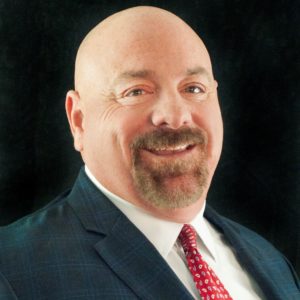GAO: Expand cuts in antipsychotic drug use
Assisted living communities and home health agencies will be some of the next frontiers for the federal government’s efforts to reduce the use of antipsychotic medications in those with dementia. In a report [PDF] made public today, the Government Accountability Office (GAO) recommends that the U.S. Department of Health and Human Services (HHS) expand related outreach and educational efforts beyond nursing homes to include assisted living communities, homes and other settings where those with dementia receive care. HHS concurs with the recommendation and will update its National Alzheimer’s Plan accordingly, the GAO says.
The report’s recommendation also has the backing of at least two organizations representing assisted living providers.
“We set a goal of lowering antipsychotic use by 15 percent in assisted living communities nationwide” in addition to goals for nursing centers and nursing homes, Greg Crist, senior vice president of public affairs for the American Health Care Association/National Center for Assisted Living, tells Long-Term Living. “There’s a lot more progress to be made, but we have the knowledge and the desire to achieve these goals on behalf of the thousands we serve.”
Maribeth Bersani, senior vice president of public policy for the Assisted Living Federation of America (ALFA), tells Long-Term Living that one word is especially important in any conversation about a reduction in the use of the drugs. “The key word is to reduce inappropriate use of the medications, because there are times when their use is appropriate,” she says. ALFA members have made a conscious effort to reduce the inappropriate use of antipsychotic drugs in their communities, Bersani notes, and have seen “good progress” toward that end.
Use in and out of nursing homes
The report notes that HHS agencies “have taken several actions to address antipsychotic drug use by older adults in nursing homes, as described in HHS’s National Alzheimer’s Plan; however, none have been directed to settings outside of nursing homes, such as assisted living facilities or individuals’ homes.” It adds: “Extending educational efforts to caregivers and providers outside of the nursing home could help lower the use of antipsychotics among older adults with dementia living both inside and outside of nursing homes.”
About 33 percent of Medicare Part D beneficiaries living with dementia in nursing homes and about 14 percent of Part D beneficiaries living with dementia outside of nursing homes were prescribed an antipsychotic medication in 2012, according to a GAO analysis shared in the report. That year, the GAO says, Medicare paid $363 million for the drugs for older adults with dementia living in short-stay and long-stay nursing homes as well as in other settings.
Also in 2012, HHS’ Centers for Medicare & Medicaid Services (CMS) introduced the National Partnership to Improve Dementia Care in Nursing Homes. In September 2014, the public/private collaboration announced new goals related to reducing the use of the drugs in nursing home residents by 25 percent by the end of 2015 and by 30 percent by the end of 2016; both percentages are in relation to a baseline rate from the fourth quarter of 2011. The new goals build on an initial reduction of 15.1 percent (with total use decreasing nationwide from 23.8 percent to 20.2 percent), which occurred over time from 2011 to 2013.
In February 2015, the partnership announced that use of the drugs in long-stay nursing home residents had experienced a greater-than-expected decrease. A total of 19.2 percent of such residents were receiving an antipsychotic medication in the third quarter of 2014 compared with 23.9 percent in the fourth quarter of 2011, a decrease of 19.4 percent, the group said.
Also in February, CMS incorporated two measures related to antipsychotic medication use, one for long-stay facilities and one for short-stay facilities, into its five-star ratings of nursing homes. The information already had been available on CMS’ Nursing Home Compare website but previously had not been part of the star ratings.
“Stakeholder groups we spoke to indicated that educational efforts similar to those provided under the National Partnership should be extended to those providing care to older adults in other settings, such as hospitals and assisted living facilities,” the GAO report notes. “Some stakeholders noted that some of the same material regarding non-pharmacological interventions could be shared with caregivers in these other care settings.”
The GAO produced the report at the request of Sen. Ron Johnson (R-WI), chair of the U.S. Senate Committee on Homeland Security and Governmental Affairs; Sen. Thomas R. Carper (D-DE), ranking member of that committee; and Sen. Susan M. Collins (R-ME), chair of the Senate’s Special Committee on Aging. It was released privately to them Jan. 30.
I Advance Senior Care is the industry-leading source for practical, in-depth, business-building, and resident care information for owners, executives, administrators, and directors of nursing at assisted living communities, skilled nursing facilities, post-acute facilities, and continuing care retirement communities. The I Advance Senior Care editorial team and industry experts provide market analysis, strategic direction, policy commentary, clinical best-practices, business management, and technology breakthroughs.
I Advance Senior Care is part of the Institute for the Advancement of Senior Care and published by Plain-English Health Care.
Related Articles
Topics: Alzheimer's/Dementia , Articles , Medicare/Medicaid , Regulatory Compliance










